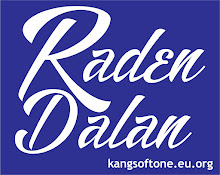Introduction
Public opinion serves as a powerful force that shapes the fabric of societies, influences political landscapes, and molds cultural narratives. This article delves into the intricacies of public opinion, exploring its formation, impact, and role in contemporary society. From the factors that shape public sentiment to its implications on governance, this exploration aims to unravel the dynamics of public opinion.
The Intricacies of Public Opinion
1. Definition and Formation
Examine the concept of these opinion, understanding it as the collective viewpoint of a population on various issues. Explore the factors that contribute to the formation of public opinion, including media influence, social interactions, personal experiences, and cultural background. Delve into the psychology of how individuals come together to create shared perspectives.
2. Media Influence
Investigate the role of media in shaping these opinion. Analyze the impact of traditional and digital media on public perception, exploring the mechanisms through which news, social media, and other outlets contribute to the framing of issues. Discuss the potential for media to both inform and influence public sentiment.
3. Political Implications
Explore the pivotal role of these opinion in democratic societies. Understand how political decisions, policies, and elections are often influenced by the sentiments of the public. Examine case studies and historical examples to illustrate instances where these opinion has driven political change or shaped policy agendas.
4. Cultural and Social Dynamics
Public opinion is deeply intertwined with cultural and social dynamics. Investigate how societal norms, values, and cultural shifts influence public sentiment. Discuss how changing demographics, generational differences, and cultural movements contribute to the evolution of these opinion over time.
5. Measurement and Polling
Examine the methods used to measure these opinion, including surveys, polls, and focus groups. Discuss the challenges and limitations associated with gauging the diverse perspectives within a population. Explore the role of polling in political campaigns and policy-making.
6. Globalization and Diverse Perspectives
Consider the impact of globalization on the formation of these opinion. Explore how interconnectedness allows for the sharing of perspectives on a global scale. Discuss the challenges and opportunities presented by diverse cultural and regional viewpoints in shaping public opinion worldwide.
Conclusion
Conclude by emphasizing the dynamic nature of public opinion, acknowledging its role as a driving force in shaping societies. Emphasize the need for an informed and engaged citizenry, highlighting the ongoing dialogue between individuals, institutions, and the media that collectively contributes to the ever-evolving landscape of these opinion.
 KangSoftone Berita Informasi Terlengkap & Terbaru
KangSoftone Berita Informasi Terlengkap & Terbaru